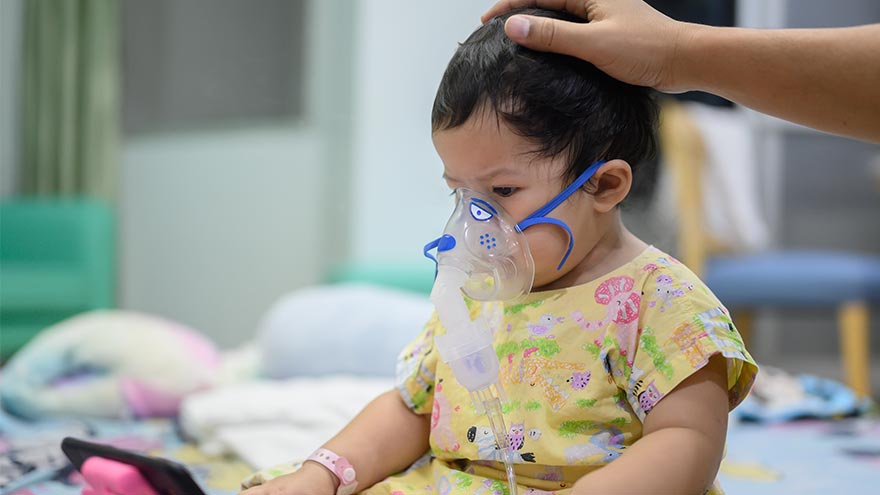Pediatric Appointments
Schedule an appointment with a Renown Children's Primary Care Provider today to receive expert care and advice for your child.
January 02, 2024

Respiratory syncytial virus, also known as RSV, is a common respiratory virus that impacts the lungs and breathing pathways. The virus can be dangerous for infants and young children and is also concerning for older adults.
While most older kids and adults only experience cold-like systems and recover in a week or two, an estimated 58,000-80,000 children younger than 5 years old are hospitalized due to RSV each year, and in 2022 healthcare organizations across the country are experiencing higher infection rates than in years past.
"We are experiencing a strong RSV season and do not expect it to go away anytime soon," said Dr. Kris Wilson, Division Chief of Renown Children's Primary Care. "Infants who are infected with RSV almost always show symptoms of runny noses and cough. Call your healthcare provider immediately if your child is having difficulty breathing, is not drinking enough fluids, or is experiencing any worsening of these symptoms.”
Symptoms of RSV:
Call your pediatrician! If you suspect your child might have RSV, consulting their healthcare provider is the best first line of defense. From here they will help you build an appropriate treatment plan for child. Keep in mind that many pediatrician offices offer 24/7 call lines.
If your child is experiencing retracted breathing (when the area between the ribs and in the neck sinks in when a person attempts to inhale), dehydration (not drinking and decrease in wet diapers) or apnea (pauses in breathing for more than 10 seconds) please call 911 or go to the closest emergency room.
Good news! The biggest RSV prevention tips are almost identical to what we’ve already been doing to prevent COVID-19 – so hopefully, these actions are already second nature.
If you have young children or regularly encounter younger children, remember to:
Older adults – especially those over 60 years old, have chronic heart or lung disease or a weakened immune system – also need to be hyper-vigilant about RSV.
If you or your loved one is in the older adult at-risk group, remember to follow the above prevention measures and talk to your healthcare provider immediately if you suspect you have RSV.
*Data courtesy of the Center for Disease Control and Prevention.